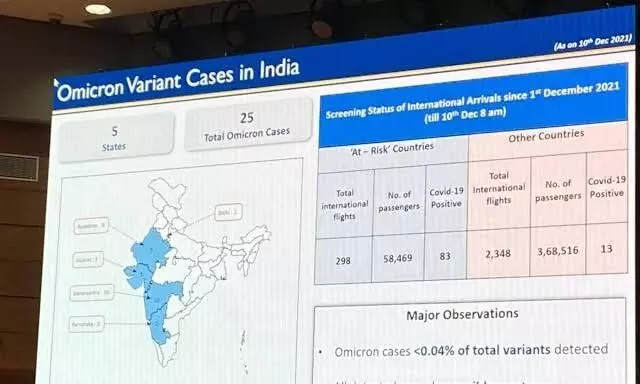
No 'clear evidence' on transmissibility, severity of Omicron: INSACOG
text_fieldsAmid rising cases of Omicron, Indian SARS-CoV-2 Genomics Consortium (INSACOG)'s latest bulletin has revealed that there is no clear evidence yet on the transmissibility, immune evasion or severity of the super mutated variant in the country.
INSACOG is a consortium of 38 government-owned laboratories established to monitor genomic variations of the virus that causes coronavirus.
In its latest bulletin dated December 13 and published on Monday, the consortium said public health measures and investigations are being conducted to look into the new variant.
"At this time, there is no clear evidence regarding transmissibility, immune evasion, or severity in India," INSACOG said.
It further said that while the Delta variant, including its B.1.617.2 (AY) and AY.x sublineages, continues to be the main variant of concern globally, Omicron continues to grow rapidly.
"Cases have continued to increase in South Africa, with a smaller but clear rise in hospitalizations. Pending complete genomic sequencing, in the UK, S-gene target failure has shown a very rapid increase in likely Omicron cases and this would represent a significant growth advantage against Delta," the INSACOG said.
So far, India has reported 174 cases of the Omicron variant of the coronavirus across 11 states and Union Territories, including Maharashtra and Delhi.
The consortium said that while there are some indicators that the disease may be milder with Omicron, there is insufficient data to determine whether this is because of prior infections or vaccination.
"There is insufficient data for Omicron severity in unvaccinated or partially vaccinated older subjects," INSACOG said.
ADVERTISEMENT























